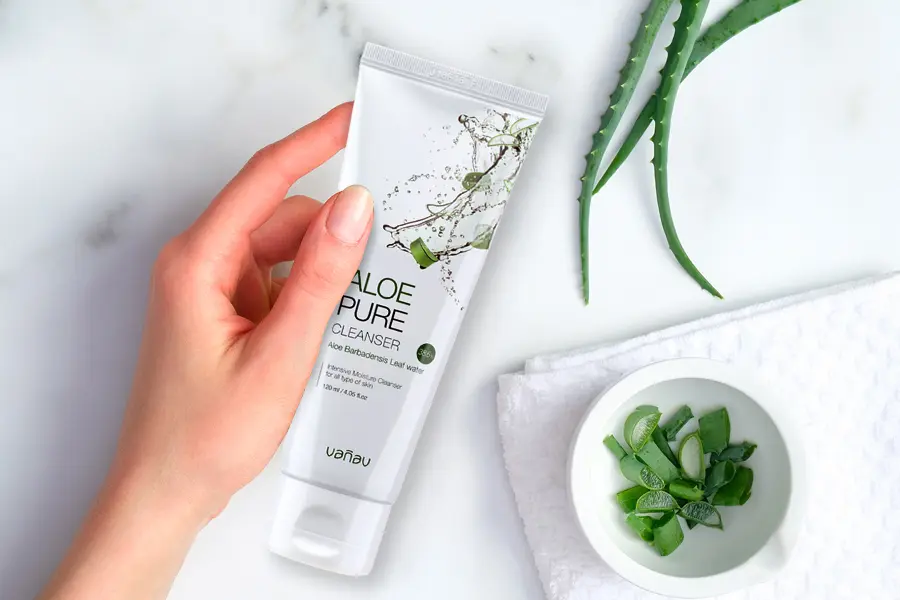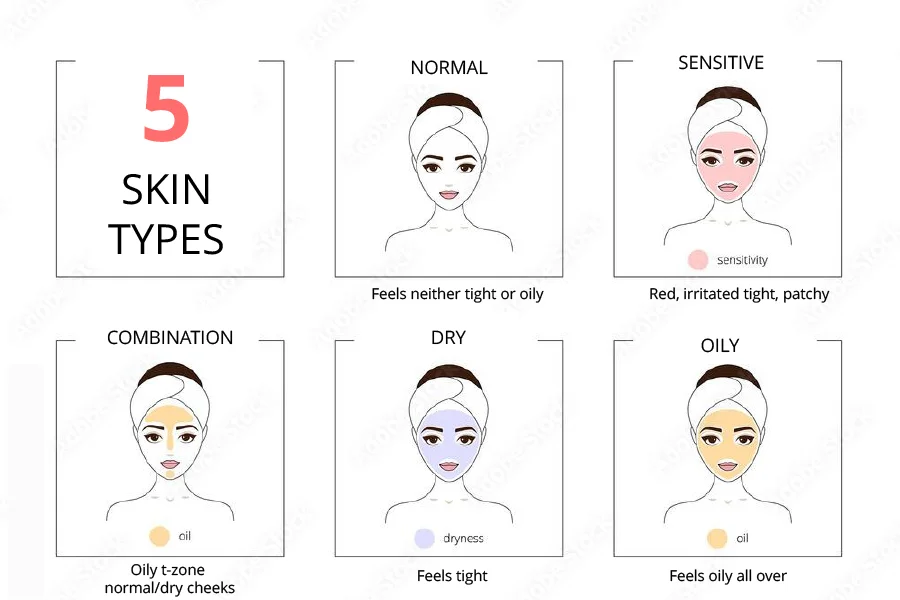No products in the cart.
Posted in Anti-aging, Cleansing, Face lifting, Skincare
How To Determine Your Skin Type
Knowing your skin type is essential for creating a skincare routine that works for you. Understanding your skin type is the first step in creating an ideal skincare routine. There are five main skin types—oily, normal, combination, dry, and sensitive—and each comes with its own set of benefits and challenges. All skin types can benefit from daily cleansing and moisturizing but different skin types have different needs. By first understanding what type of skin you have, you can begin to make informed decisions giving your skin the customized care and protection it needs now and for years to come.
There’s no “one size fits all” approach on achieving radiant, healthy-looking skin – cause it is important to remember that each individual’s skin is unique in so many ways.
Five Basic Skin Types:
Let’s have a rundown on the five basic skin type:
Oily Skin:
Oily skin is characterized as an excess production of sebum that causes the skin to appear shiny and feel greasy- specially throughout the T-zone are (forehead, nose, and chin). People with oily skin may tend to have less wrinkles, according to the American Academy of Dermatology (AAD),1 but they may also be more prone to enlarged pores, acne blemishes, blackheads, and whiteheads.
Dry Skin:
Dry skin is called the skin that doesn’t have enough oil. It produces less natural oils compared to other skin types. It is noticeably dehydrated, feels tight, and is prone on showing more visible fine lines.
For people with dry skin type it is recommended to use gentle, soothing, and hydrating ingredients such as VANAV Aloe Pure Cleanser.
Normal Skin:
Normal skin is a balanced skin- neither too dry nor too oily. It does not display any persistent skin concern. The ideal normal skin routine helps maintain your skin’s hydration by locking in moisture and supporting your skin’s protective barrier.
Combination Skin:
You can classify this skin type with the T-zone commonly being oily and the cheeks being either normal or dry.
Sensitive Skin:
If you have sensitive skin, it may appear red and feel like it’s burning, itching, or dry. Sensitive skin is characterized by a heightened sensitivity to stressors, including some skincare products.
After learning the five types of skin- you should also note that your skin type can change. For example, when you were on puberty stage or your teenage years, it’s pretty common that you’ll have oily skin type or blemish prone skin. However, as you get older, your skin gets drier, and your acne issue is replaced with aging issues such as fine lines and wrinkles.
Other factors, like the climate you live in, may also influence your skin type: Hot weather and humidity can be linked to oilier skin, while cold, dry air is often associated with dryness.
It’s important to remember that any skin type can also be sensitive or prone to acne breakouts, though those with normal skin may be less likely to experience either. However, with the right products, you can care for your skin while addressing concerns like sensitivity and acne blemishes. When in doubt, visit a board-certified dermatologist for a personalized skin assessment and guidance on the best skincare routine for your skin type.
REFERRENCES:
“Skin Care Tips Dermatologists Use.” American Academy of Dermatology Association, 2022.






